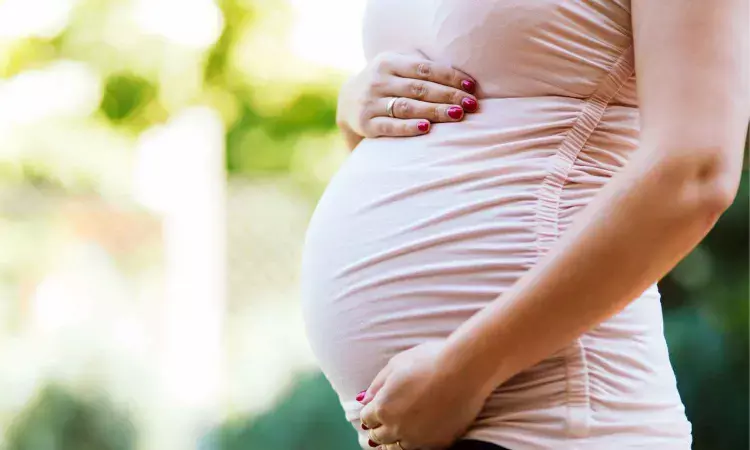- Home
- Medical news & Guidelines
- Anesthesiology
- Cardiology and CTVS
- Critical Care
- Dentistry
- Dermatology
- Diabetes and Endocrinology
- ENT
- Gastroenterology
- Medicine
- Nephrology
- Neurology
- Obstretics-Gynaecology
- Oncology
- Ophthalmology
- Orthopaedics
- Pediatrics-Neonatology
- Psychiatry
- Pulmonology
- Radiology
- Surgery
- Urology
- Laboratory Medicine
- Diet
- Nursing
- Paramedical
- Physiotherapy
- Health news
- Fact Check
- Bone Health Fact Check
- Brain Health Fact Check
- Cancer Related Fact Check
- Child Care Fact Check
- Dental and oral health fact check
- Diabetes and metabolic health fact check
- Diet and Nutrition Fact Check
- Eye and ENT Care Fact Check
- Fitness fact check
- Gut health fact check
- Heart health fact check
- Kidney health fact check
- Medical education fact check
- Men's health fact check
- Respiratory fact check
- Skin and hair care fact check
- Vaccine and Immunization fact check
- Women's health fact check
- AYUSH
- State News
- Andaman and Nicobar Islands
- Andhra Pradesh
- Arunachal Pradesh
- Assam
- Bihar
- Chandigarh
- Chattisgarh
- Dadra and Nagar Haveli
- Daman and Diu
- Delhi
- Goa
- Gujarat
- Haryana
- Himachal Pradesh
- Jammu & Kashmir
- Jharkhand
- Karnataka
- Kerala
- Ladakh
- Lakshadweep
- Madhya Pradesh
- Maharashtra
- Manipur
- Meghalaya
- Mizoram
- Nagaland
- Odisha
- Puducherry
- Punjab
- Rajasthan
- Sikkim
- Tamil Nadu
- Telangana
- Tripura
- Uttar Pradesh
- Uttrakhand
- West Bengal
- Medical Education
- Industry
Higher BMI in early pregnancy Linked to Child Obesity Risk, finds Australian study

New research being presented at this year's European Congress on Obesity (ECO 2025) highlights the need to support women and their families with overweight or obesity to optimise their health and weight before they become pregnant.
The Australian study found the greater a woman’s BMI in pregnancy, the greater her child’s weight from birth to the age of ten. This was the case regardless of whether the woman took part in a dietary and lifestyle intervention (LI) while pregnant or received standard antenatal care (SC). They also reported that the BMI of the father significantly influences the child’s weight at age 10.
The results are the latest from the LIMIT trial which involved 2121 pregnant women with overweight or obesity (average age 29.4 years, median BMI 31.1 in early pregnancy).
Half of the women took part in the LI, which consisted of advice and support for eating a healthy diet (for example, eating more fruit and fibre and reducing intake of refined carbohydrates and saturated fat) and increasing physical activity. The other participants received standard antenatal care (standard care group, SC).
“Women with overweight or obesity are at increased risk of pregnancy complications, like gestational diabetes, high blood pressure, caesarean birth and high infant birth weight, and for their children to develop obesity,” says researcher Professor Jodie Dodd, of the University of Adelaide, South Australia, Australia.
“With approximately 50% of women entering pregnancy with overweight or obesity, the trial was carried out to see if changes in diet and physical activity during pregnancy could reduce these risks.”
The initial results1, which were published in 2014, showed the infants whose mothers took part in the LI group were 18% less likely to have birth weight above 4kg (8lb 13oz), a known risk for childhood obesity. However, there were no other differences in maternal or birth outcomes, including pregnancy complications, between the two groups.
The children were also followed-up throughout childhood. There was no evidence of a difference in health or growth of the children from women in either the LI and SC group.
For the latest study, Professor Dodd and colleagues examined the effect of maternal BMI in early pregnancy on childhood weight and other measures of growth taken at birth and aged 6 months, 18 months, 3-5 years old and 8-10 years old.
They found that a child’s growth was linked to its mother’s BMI in early pregnancy – and that every 5kg/m2 increase in a woman’s BMI was associated with an increase in their child’s BMI by 0.11kg/m2 at birth, to 0.74kg/m2 at 8-10 years of age.
The effect of maternal BMI became more prominent at age 3-5 years and was particularly noticeable at 8-10 years. This was the case across the different measures of child growth studied – BMI, weight and their standardised measures. Additionally, paternal BMI impacted child weight and BMI, particularly at ages 8-10 years.
Professor Dodd says: “We know that women living with overweight or obesity are at increased risk of complications like high blood pressure in pregnancy. We also know that lifestyle interventions during pregnancy are ineffective for improving health outcomes for women and their baby/child.(1, 2, 3)
“What we found here was that a woman’s BMI in early pregnancy impacts how her child grows from birth to 8-10 years of age –so, if a woman’s BMI is higher going into pregnancy her child’s risk of overweight and obesity increases too. Father’s also have a role to play, as paternal BMI also contributes to child obesity.
“It’s vital that healthcare providers focus on supporting women and their families to optimise their health and weight before pregnancy, if we are to intervene and potentially reduce the intergenerational cycle of obesity.”
The greater a woman’s BMI in early pregnancy, the more likely her child is to develop overweight or obesity, Australian study finds European Congress on Obesity (ECO2025)
Dr Kamal Kant Kohli-MBBS, DTCD- a chest specialist with more than 30 years of practice and a flair for writing clinical articles, Dr Kamal Kant Kohli joined Medical Dialogues as a Chief Editor of Medical News. Besides writing articles, as an editor, he proofreads and verifies all the medical content published on Medical Dialogues including those coming from journals, studies,medical conferences,guidelines etc. Email: drkohli@medicaldialogues.in. Contact no. 011-43720751


